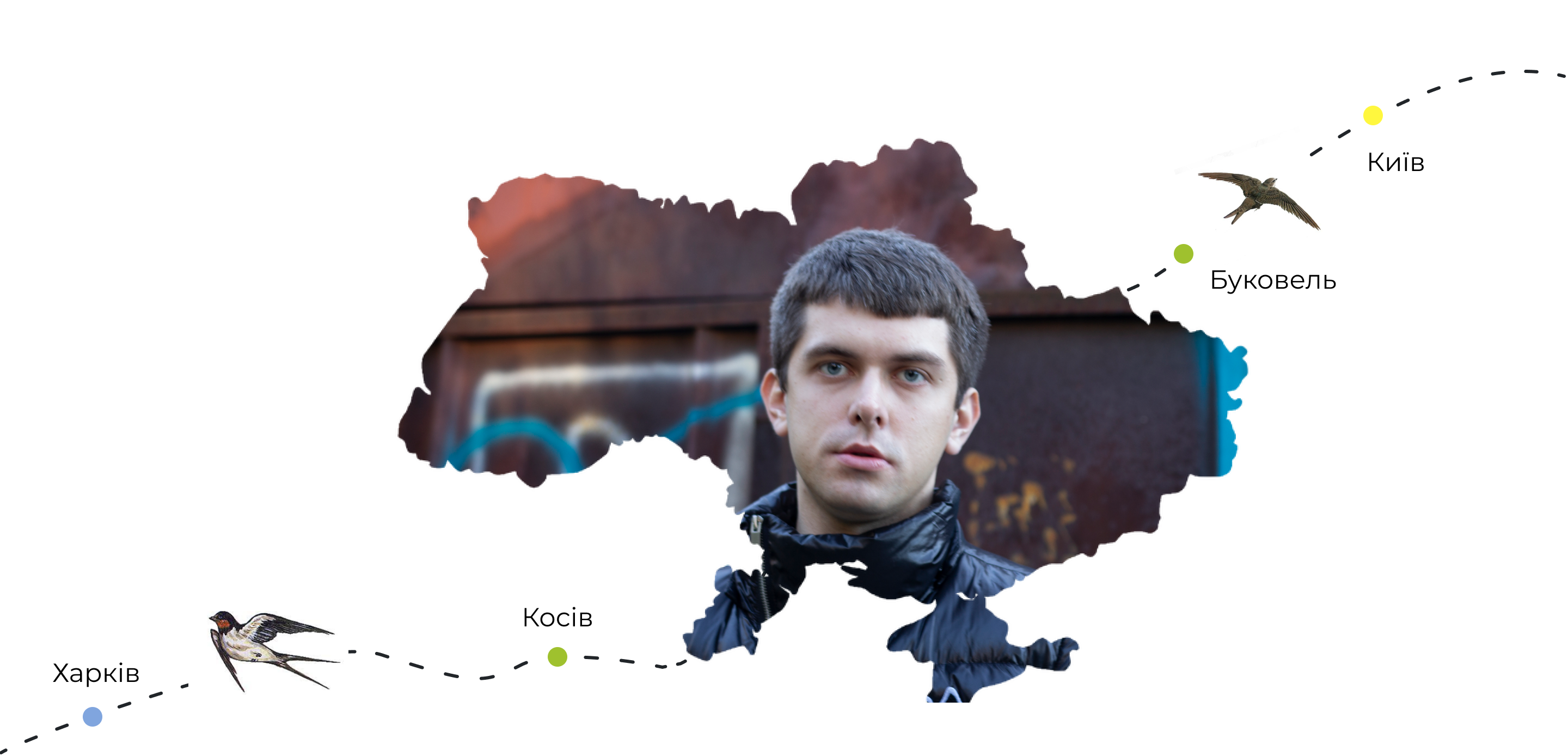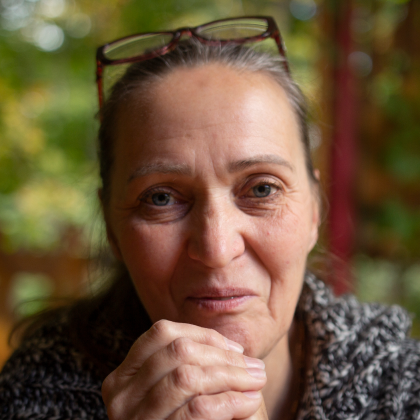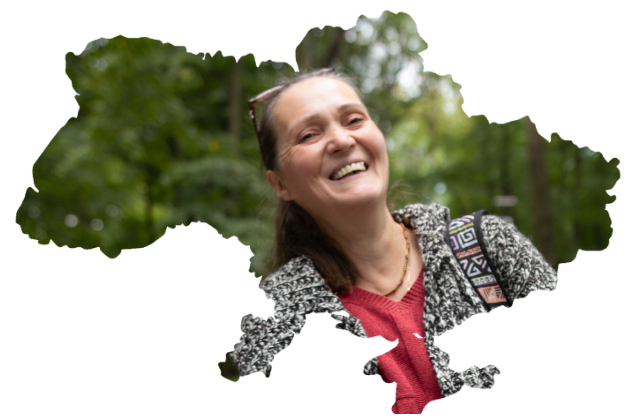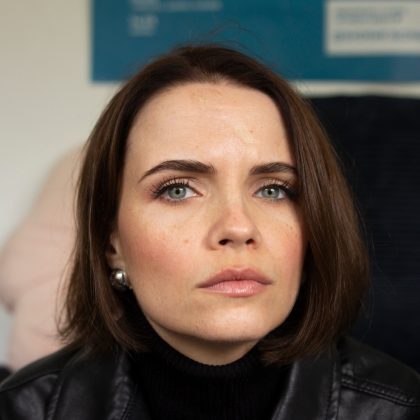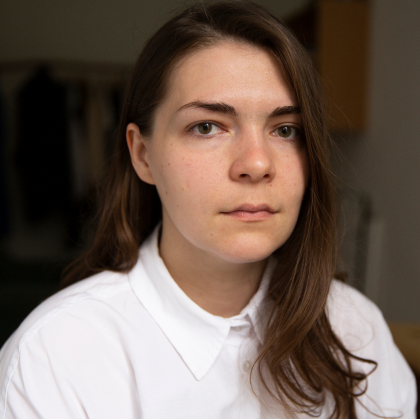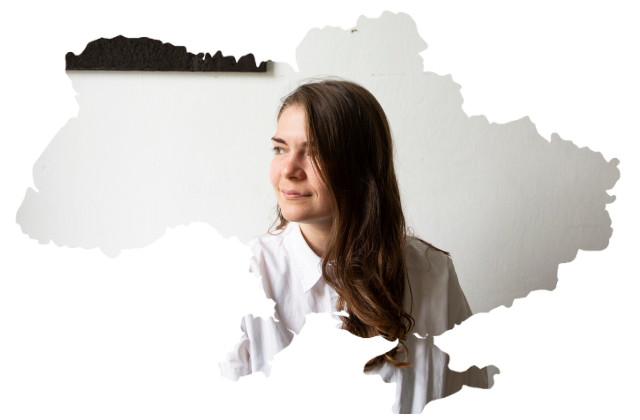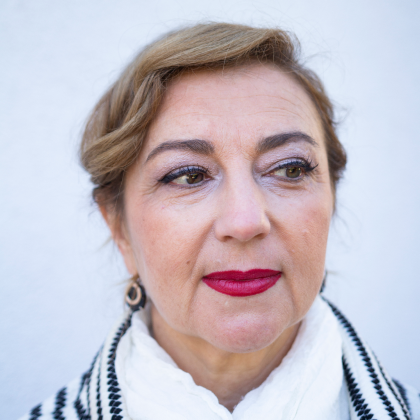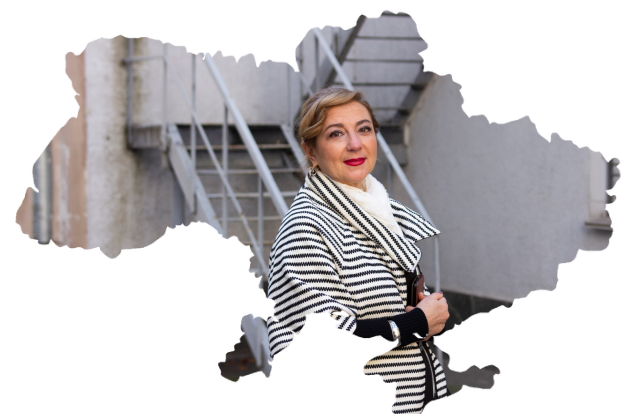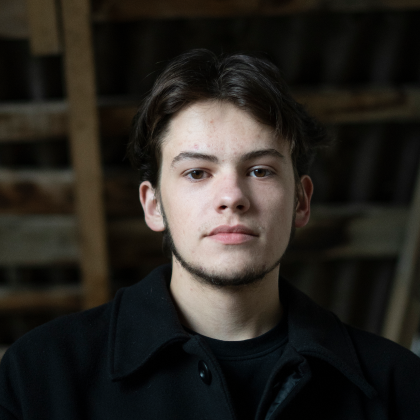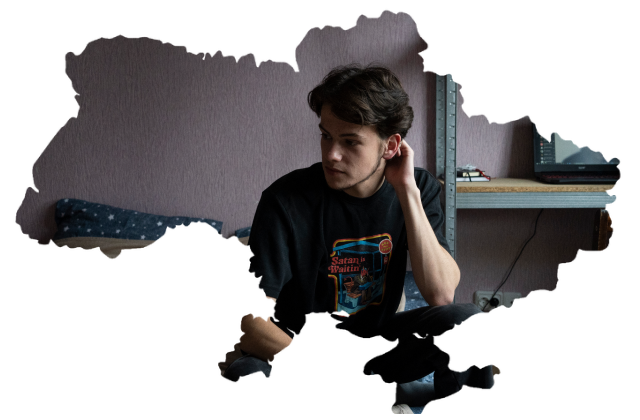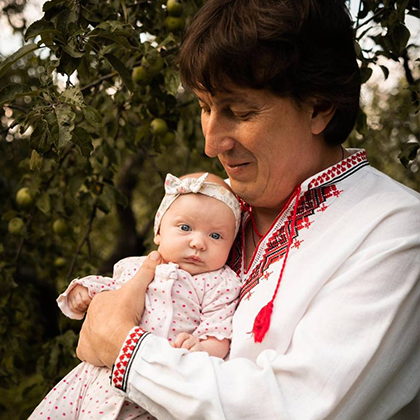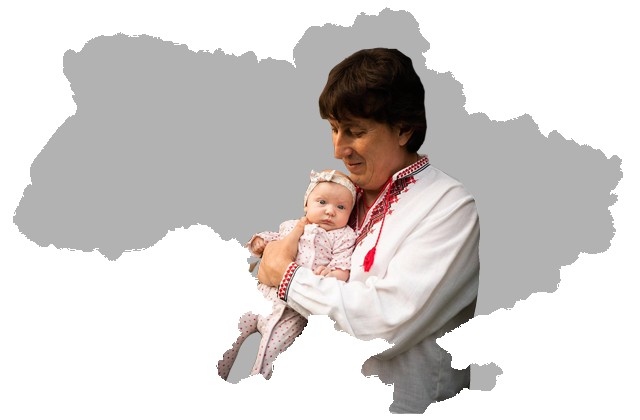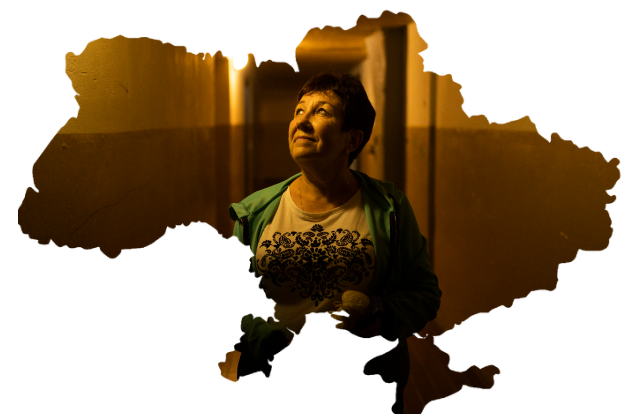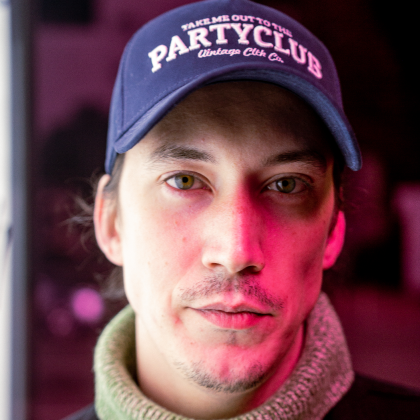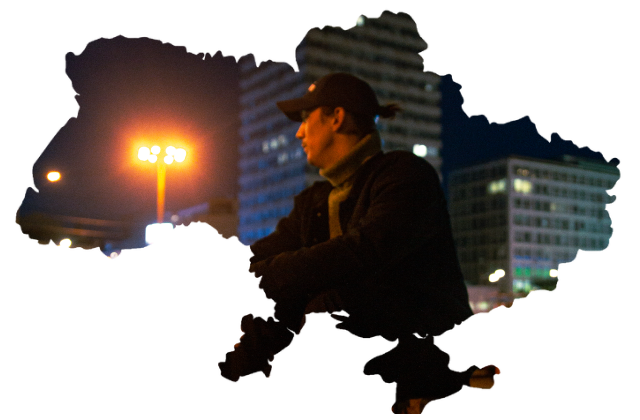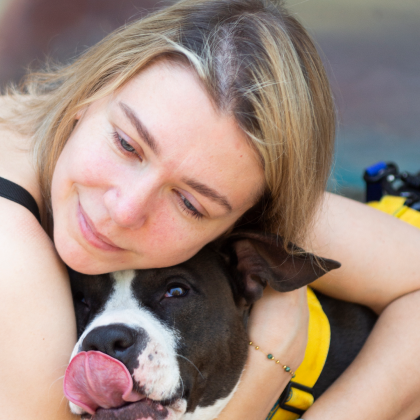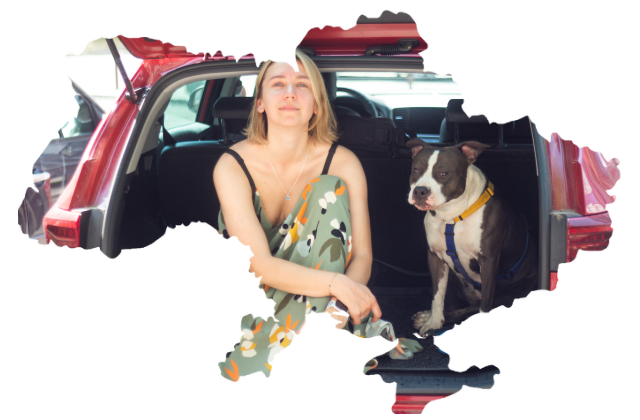Ivan Dzhelomanov
Founder of the Provider cultural blog, community manager in the digital-fashion-marketplace ARTISANT, content manager in the IT-company AMO
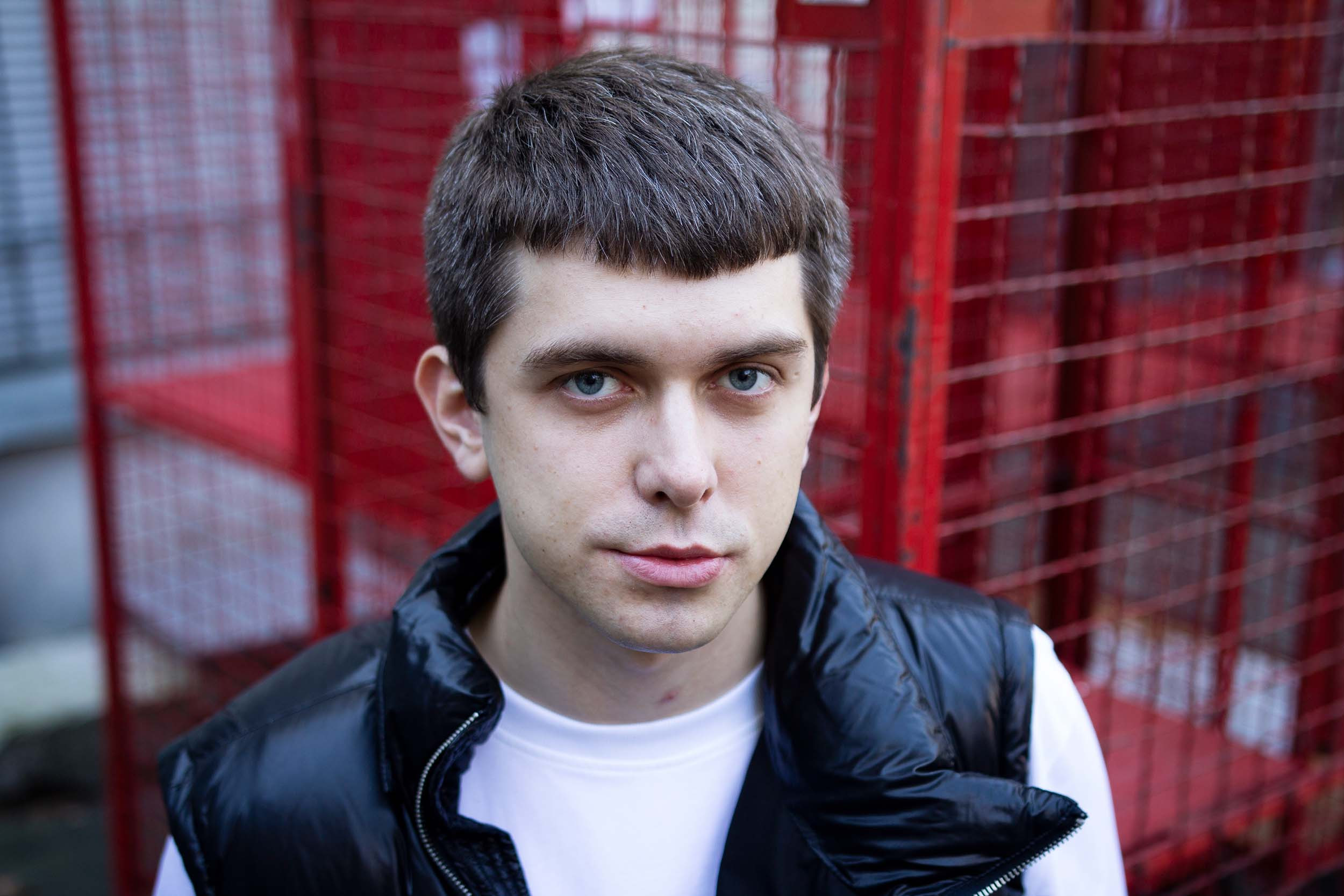
Kharkiv — Kosiv — Bukovel — Kyiv
I am from Mariupol. Five years ago I moved to Kharkiv. Kharkiv was the place where I was on February 24. The day before, we celebrated a friend's birthday and agreed that if there was a war the next day, then we would at least spend some time together.
My wife, Nastia, and I got home at around 3 a.m. I went to bed, and at about 5:30 she woke me up when she heard explosions. She said: "The war has started." For some reason, I was totally calm about it.
The to-do list got formed along the way. First, we started packing things. Then our friend called and picked us up in his car. We drove to his house, where there was at least some kind of basement. We equipped it the best we could and spent the day there to the sound of non-stop bombing. At that time it was not yet clear where exactly the Russians were: had they entered the city or not. And we lived in that state of uncertainty.
On February 25 we decided to leave Kharkiv without really knowing where we were going. We left in two cars: me, my wife, her sister, her sister's child, her husband, and two friends of ours. Back then we didn't know what was going on at the checkpoints, if there was anyone there at all or whether they let people out. We didn't where the Russians were and so on. Eventually, we drove out of town quite calmly. However, we soon got a flat tire, and we barely made it to the gas station.
We decided to go to Kosiv, in the Ivano-Frankivsk Oblast, to visit our family's friend. The traffic jams and the need to avoid potentially dangerous spots made it a twenty-four-hour drive. There was only one person in our car who had a driving license, and he was behind the wheel the entire time. When we were about to get to our destination, he started to fall asleep. At one point all of us dozed off and the car started drifting to the curb. Friends of ours were driving behind us and called us just to wake us up. Luckily, it worked and everything turned out okay.
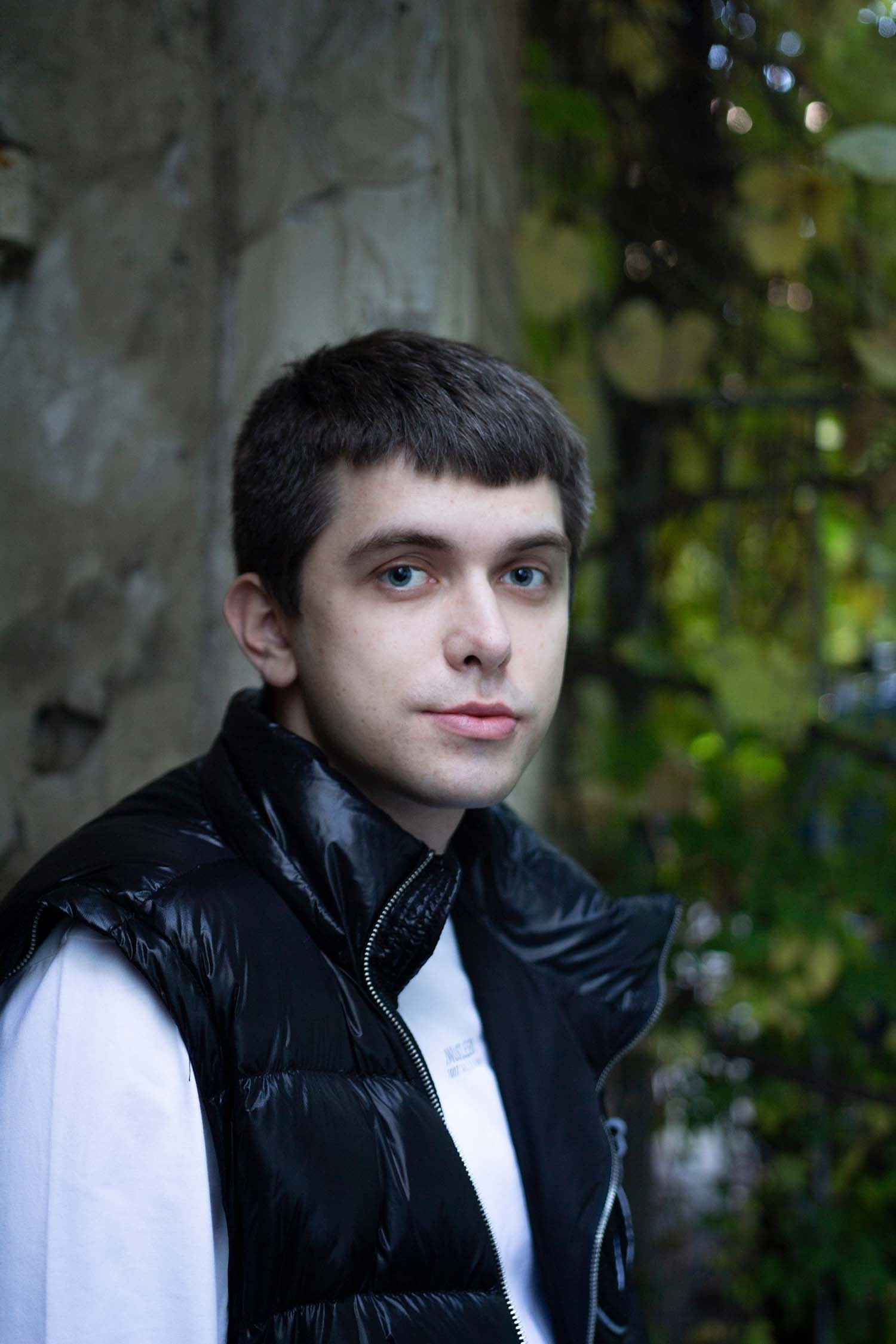
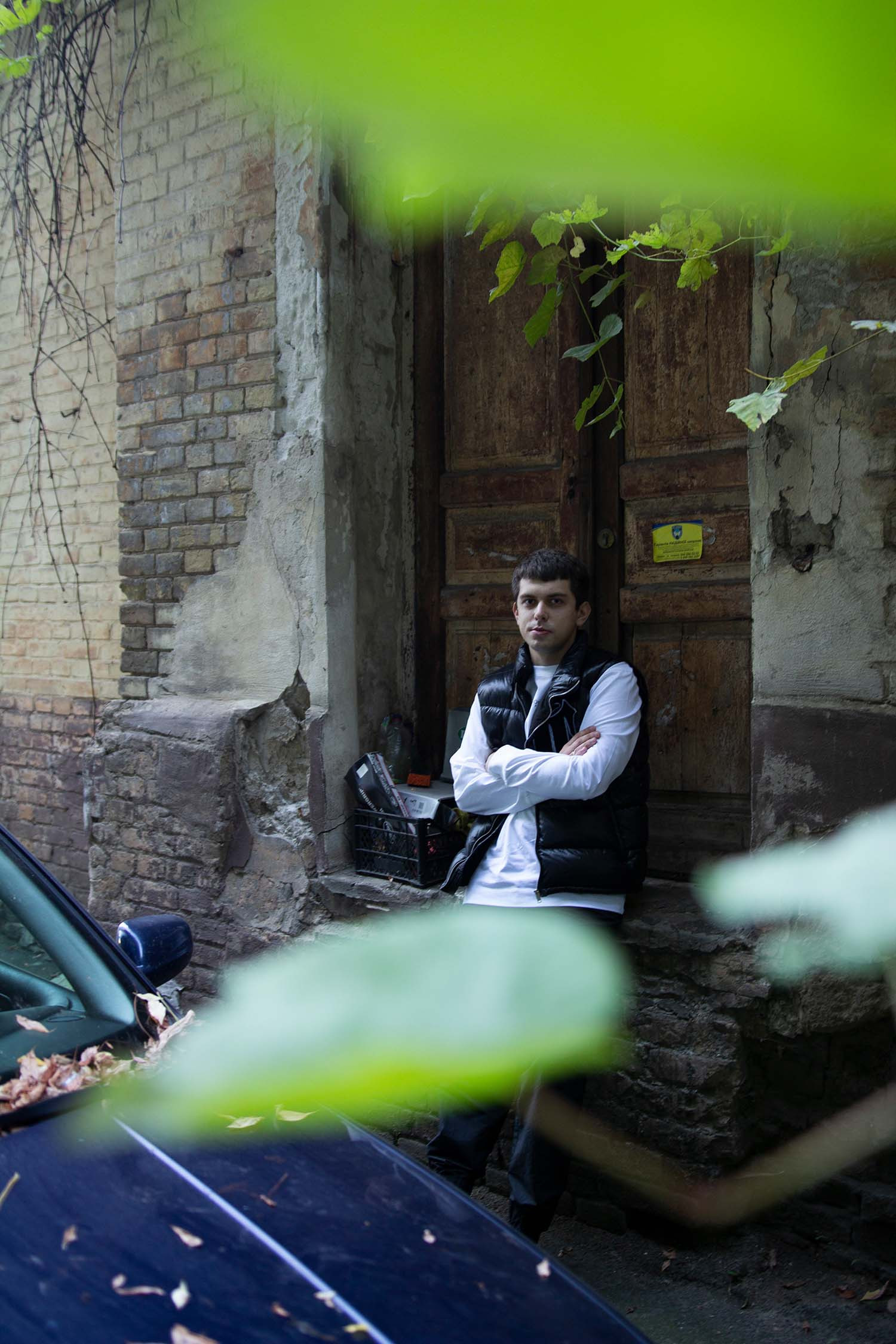
In Kosiv, a friend settled us in a two-story house with his parents. We lived there as a sort of commune together with our friends. Besides that, other people kept coming and going all the time. At a certain point, 15 people were staying in the house. We stayed in Kosiv till June 1 and then went to Bukovel.
I used to be part of Fast Food Music, but I decided to quit because, one way or another, Fast Food had to do with the Russian audience and Russian musicians. One of the co-founders and part of the team live in Russia. So I left, even though I had given 10 years of my life to the project.
Then I started actively looking for a job. An old friend of mine had a large IT company. I had worked there before, and I decided to join it again. The company housed all of its employees in Bukovel for free. They rented a good hotel, where anyone could come and stay for as long as they wanted.
I moved from Kosiv to Bukovel on my own since my wife had already been in Spain. Later, she flew over to join me in Bukovel, and we stayed at the hotel there till August 1. Then, in August, I moved to Kyiv.
Before moving to Kyiv, I had an opportunity to spend one day in Ivano-Frankivsk, the first big city I had been to since the beginning of the full-scale invasion. Even then I was very much surprised to see how life was bubbling there. But Kyiv is a completely different story. Life here is just running like hell, which both shocked and delighted me at the same time. Kyiv has about a thousand restaurants, a lot of stylish, beautiful people, the parks are crowded, and the cinemas work. Now I've got used to it, but I don't forget about what happens in other parts of Ukraine, where the reality is either bombing and fighting or occupation. And I am insanely grateful to the Armed Forces of Ukraine that we have this chance to continue living a normal life here in Kyiv.
The hardest part was worrying about my parents who were in Mariupol. I remember calling my mother on March 2, which was her birthday. I congratulated her, but after that, she disappeared for a month. There was absolutely no contact. My wife and I gathered information bit by bit on Telegram channels, which gave no details (again, due to the lack of contact). I simply didn't know whether my parents were alive or not.
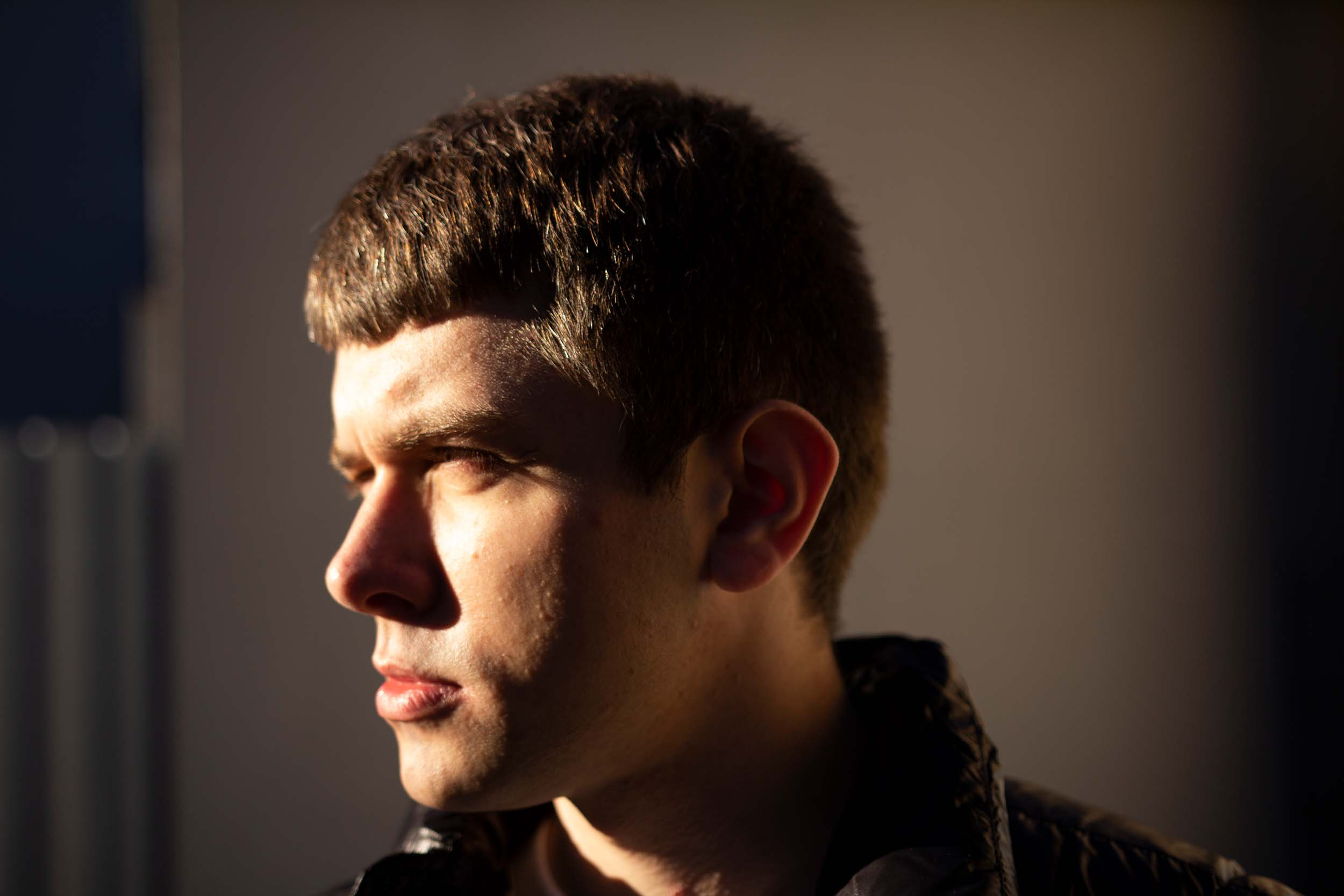
Later on, my godfather, who lived in the same building as my parents, got in touch with me. He said that everything was all right and they were alive. He also told me that he had moved down from the fifth floor to my parents who live on the ground floor and that they had organized some kind of a more or less normal household together.
Then my parents disappeared again, I heard about them only when it was already starting to get really bad - shooting and shelling with everything they had, using fighter jets... At the end of March, my parents could not stand it and just left the city on foot under the shelling. They went down to the port (it was still intact then, compared to other buildings) and knocked on the door of a private house near the beach of Peschanka. An elderly couple opened the door, gave them food and water, and put them to bed…
So, mom and dad spent the night at their place. On the next day, they continued their way to the exit from the city to take a bus to Manhush, a town 20 kilometers away from Mariupol. My grandparents and aunt live there. Parents managed to get on a free bus. On the way, of course, they got ransacked in every way imaginable. My father has tattoos, my name, and a snake. The “DNR people” at the checkpoint bugged him mercilessly and treated him rudely and with no respect whatsoever.
My parents made it to Manhush and stayed at my aunt's place. Compared to Mariupol, where people were already drinking water from radiators, Manhush was more comfortable. However, if anyone goes there now, it'll be very hard to survive there.
So I began to talk them into leaving. I called and explained that living there was the same as living in the so-called DNR: no conditions and no jobs. Dad got an injury while in Manhush, and he wasn't in the best condition. I think it happened when he was walking with a grocery bag: a missile hit somewhere behind him, he fell down, and when he got up, there was only the handle left of the bag. He found a hospital in Manhush, where they operated on him without any anesthesia at all - they needed to remove the shrapnel.
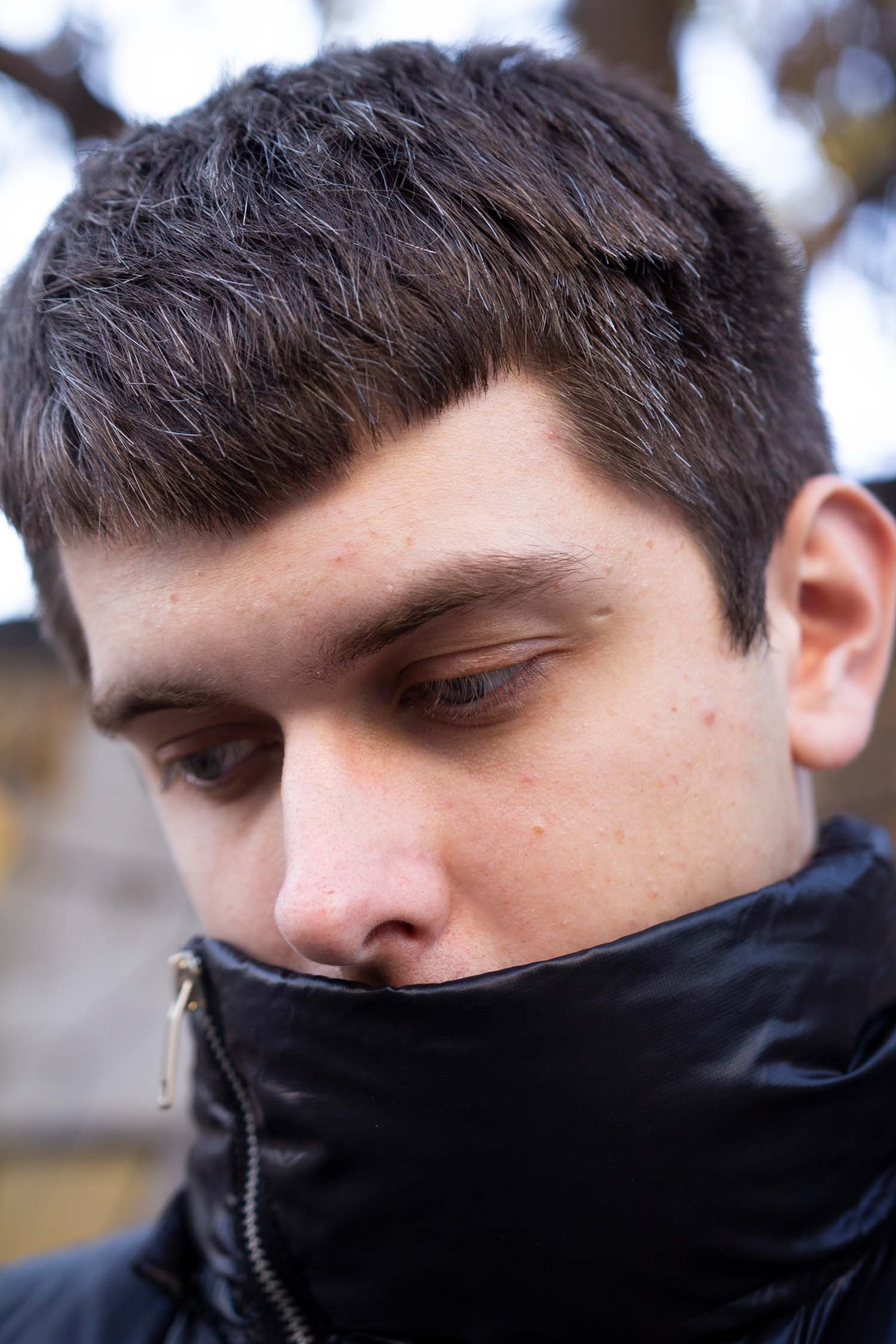
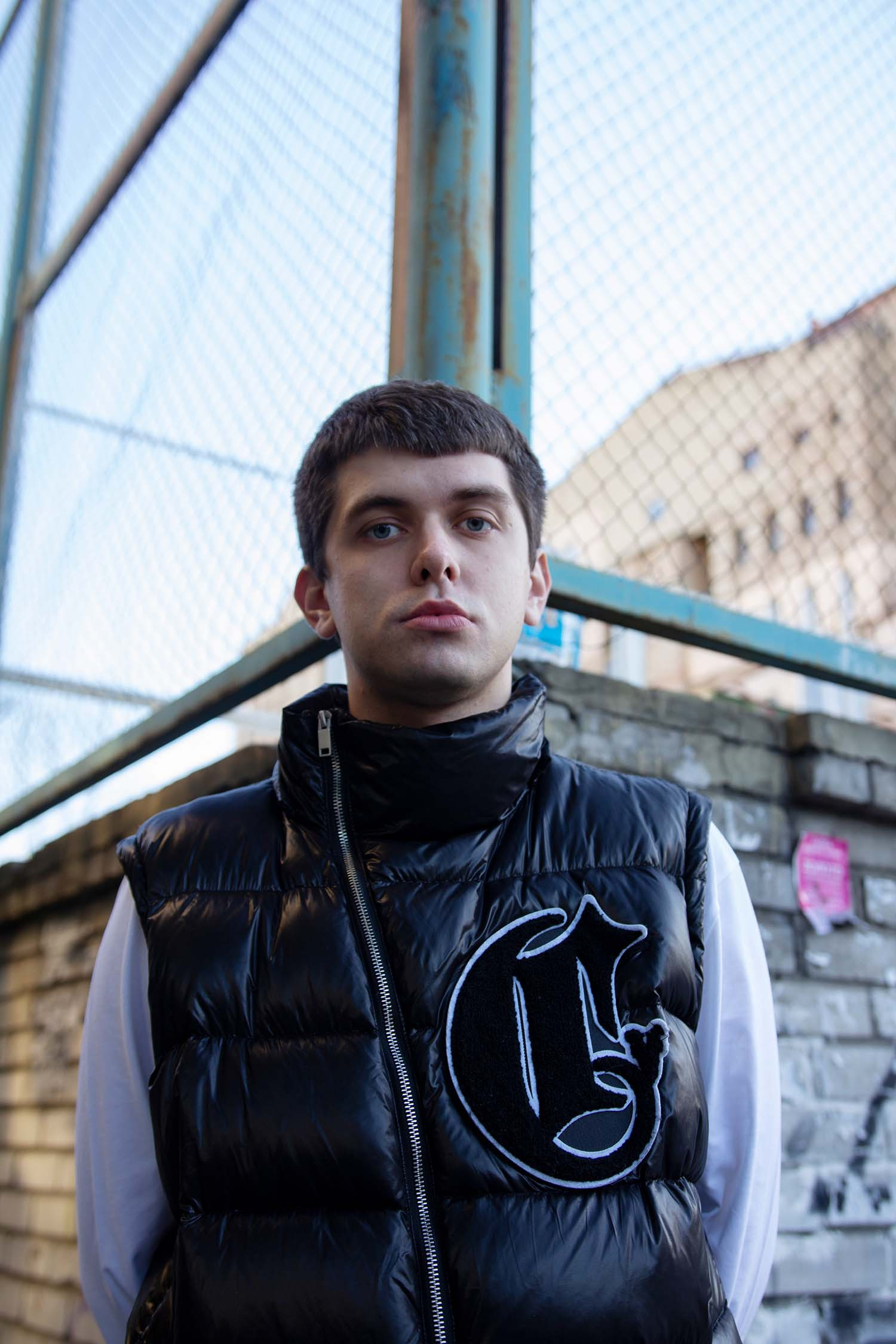
I put some pressure on my parents, and we argued, but on May 10 they agreed to leave Manhush. I helped them financially, but, unfortunately, they left for Europe via Russia, with Ukrainian domestic passports, because they didn't have foreign ones. First, they went to Crimea and then to Russia.
After that, they went to Estonia and Latvia, and eventually reached Germany, where they are till now. We're trying to get them foreign passports, but so far we have had no luck because of the bureaucracy.
Now I am in Kyiv, still working and developing my cultural blog. Among all the cities in Ukraine I love Kharkiv the most, but now there is no point in going back because it's too dangerous there. Besides, very few people I know remain in the city now. I think that within a year or two there won't be a normal life in Kharkiv. I don't know what's next, because Kharkiv is very close to the Russian border.
To be honest, I have never identified myself with any place or city. Therefore, when I change my place of residence, I feel OK. The problem is not in changing cities, but in the war, which, hopefully, will be over soon.
Recorded by Misha Pravilniy
Translated by Volha Mikhnovich
Photographed by Vladislav Yevdokymov
